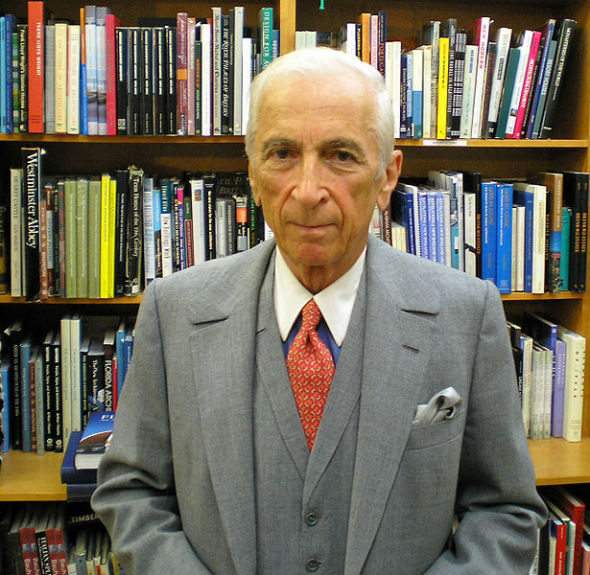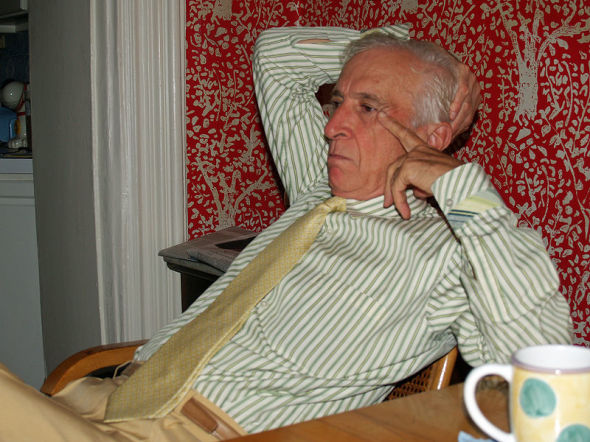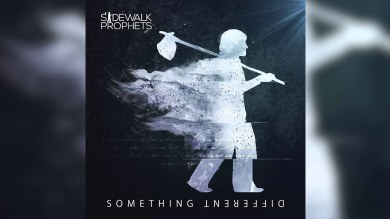Good Talks|August 27, 2015 12:21 EDT
What Would the Greatest Journalist of All Time Ask Jesus in an Interview?

The name Gay Talese is synonymous with the golden age of journalism, and a name that comes to mind when one thinks of the greatest writers to ever live. Talese has single-handedly penned some of the finest narrative journalism the world has ever seen, whether it be about stray cats in the 1950s, the life of true crime family gangsters, or the incredibly revealing "Frank Sinatra has a Cold." The man who interview profiled everyone from Muhammad Ali to Pope Paul II never had the chance to interview Jesus Christ Himself, but BREATHEcast wanted to know just what the best of all time would look for in a story.
Typically an acclaimed and well-celebrated journalist such as Gay Talese will be asked questions on the art form of his craft. He has undoubtedly given thousands of interviews and lectures on journalism and writing, but something Talese is also very passionate about is religion. He speaks about his faith and upbringing in several of his books and articles, but outside of this, he's not often questioned about his values and beliefs.
The question posed, "If you could transport yourself back into the days of Jesus and follow Him around for a story, what would you look for and what kind of questions would you ask?"
In true Talese fashion the answer to this question was not revealed quickly. The master writer chose rather to unravel past experiences to form a basis of the eventual truth he would give.

Talese took BREATHEcast back to the early 90s when he was privileged to be part of a tour of southern Italy with the Polish born Pope John Paul II. It was the first time a pope had done this since the 11th century according to Talese, and he partook in the occasion for five days with the pontiff.
He had the chance to observe the Pope as an everyday person; as someone who was taking in the sites and learning as he went along. Talese was briefly let into the entourage of the Pope's inner circle and got to experience a holy man being just a man. This feat in of itself is part of the brilliance in which Talese observes his subjects. Amongst winners, he seeks the losers, in the triumph he searches for tragedy. This attention to imperfection helps him paint the portrait of a person both inside and out as often time's people are either celebrated or highlighted by their failures.
Talese, a practitioner of Roman Catholic ideologies, however, doesn't believe the core root of Christianity needs to be viewed through the lens of its highest entity such as the Pope. "You can find religion in the best of the Catholic Church in any small community in any small town within any country," he said.
"Not every bishop, pope, and nun follows what they profess to follow," he continued. "There are some fallen people, priests who abuse children; we have enough of them in the news"¦but we're talking about the people who represent the best."
It is this approach that he would apply to Jesus - look at him as a man instead of a deity, and find the best of what he sees.
"If I'm following Jesus, I'm looking as a reporter at how he conducts his life. How does he deal with the poor? How does he deal with the unfortunate? How does he deal with the ignorant? How does he deal with the disbelievers? How does he deal with the heretics? How does he deal with all the people who are not living up to his sense of virtue and morality, and right thinking?" said Talese.
The legendary writer said he sees the world as he "assumes" Jesus would himself, "which is to be not an overbearing proselytizing missionary, but rather to be a purpose that by his way of living to be accepting of sinners as well as those who were the followers."
Talese believes the spirit of Jesus would be one of someone who was not "intolerant, but very tolerant and very open to different kinds of people." Jesus' mission was to improve the quality of God's people by bringing certain regulations and laws to an end, and opening up faith to all who believed.
"[We] could be made into better human beings or to be better accepted by fellow human beings with a little bit of larger knowledge than that knowledge that restricted them and rejected them, and hurt them, and made them subjected to all kinds of disadvantages," said Talese. "Jesus was there to uplift lives, not to downsize them or to castigate them, or to prosecute them, or to assassinate them."
Talese went on to further depict the kind of Jesus he would have liked to follow as a reporter saying the Savior was a "very tolerant person, not a rigid moralist."
His idea of a rigid moralist would be the kind of Christian who felt just in the inquisition. After careful thought, the person that came to mind was Tomas de Torquemada who practiced an extreme faith in the mid 1400s much like the ISIS of today. Torquemada was the head of the extreme group that tormented the unbelievers of the Roman Catholicism. One of the particularly hard hit groups were the Jews, who fled by the hundreds of thousands.
According to Talese, he sent people out of Spain that were not in his "righteous sense of singular spirituality."
"This is not what Jesus was as I understand the readings of His life from those who professed to be the apostles or the good reporters of His time."
He said today there are assassins running free professing to be following the "will of God" in the Middle East. Groups such as ISIS "appropriate godliness from a false god, and the false god they are being directed by in their heads; but with their hatchets and their sabers and their machine guns and their poisons are killing people as the crusades did."
Talese, in an almost indignant manner, could not stress enough that "this is not what Jesus would teach," and with the world the way it is now, some feel it may only get further away from those values.
However, the crafty wordsmith is a bit hopeful at the future of this country and would disagree to an extent with people who say Christianity is given a bad wrap in the media.
"The thing about journalism is it's a very secular occupation. It is occupied by young people who have a young point of view, which is welcoming change and looking for something that's worth writing and sometimes they have trouble describing the interior so they describe the exterior," said Talese. "They look for action, conflict, negative news and confrontations."
To this point, Talese said a story that puts down a prominent figure in faith, because of some scandal, would always take prominence over a positive story. For instance, one such example is the destruction of '19 Kids and Counting' star, Josh Duggar. Without diving into the very personal issues confronting him, whatever good things in his life that he ever accomplished will be caught in the shadow of the character played out in the tabloids. This harkens back to "action, conflict, negative news, and confrontations."
After speaking in detail about the media's portrayal of the Middle East concerning Iraq, the war, and Israel president Netanyahu, Talese gave an endorsement for President Obama.
The President's Iran deal has been a source of controversy for some time now. In some corners it is praised for being a peaceful solution to a growing problem while others loathe it as "weak" or not "forceful" enough of a message. Talese is on the pro side of the Iran deal, and likened it to a move Jesus would have pursued, saying "President Obama is more Christ like, a more open minded person, wanting to use diplomacy rather than use bombings and weaponry."
He continued, "I just so admire our President, Obama, for in his foreign policy, trying to be open to diplomacy, rather than militancy."
Click here for part two with Gay Talese as we discuss his deep seeded and faithful Catholic roots that he traces all the way back to Italy.












